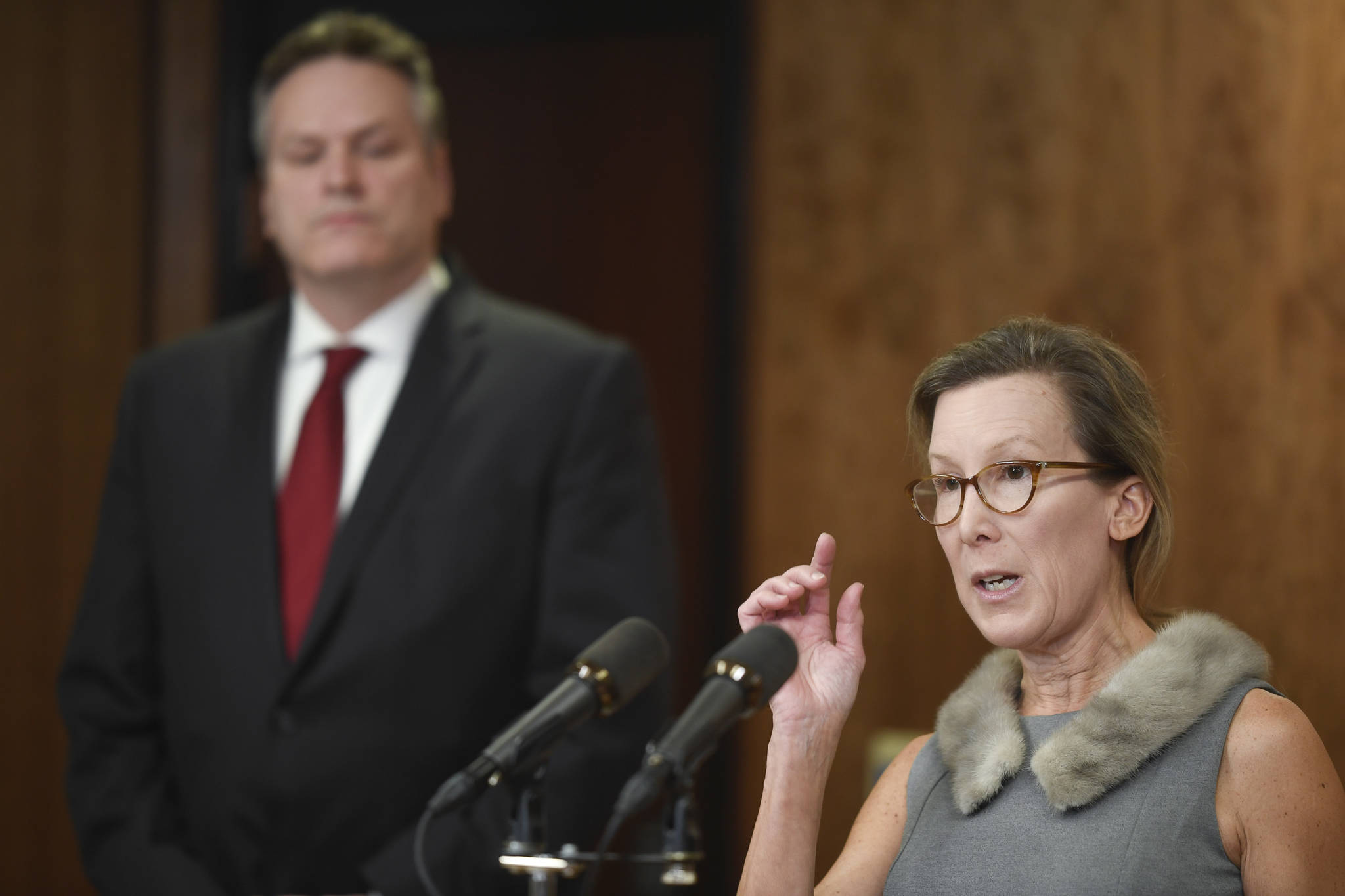We often hear politicians saying that we need to “run government like a business.” This is particularly true of conservative politicians. This is what Gov. Mike Dunleavy and many of his well-heeled supporters said during the campaign.
I spent 30 years as a development professional assessing and analyzing business cases. I thought it might be interesting to take a look at the governor’s budget from a business analysis perspective.
But before we can analyze a business we have to know something about the business itself.
It appears to me that the authors of the Alaska Constitution envisioned our state to be established as a “beneficial trust.” No other state in the union is so organized.
[Opinion: Alaska’s illusion of election mandates]
In the natural resources article of the Constitution, Article VIII at Sections 1, 2 and 3, the founders declare the collective ownership of state resources, which shall be developed “in the public interest” and for the maximum benefit of the people. Section 3, “Common Use”, is far-reaching. In his “Citizen’s Guide to the Alaska Constitution,” Gordon Harrison notes:
“This section enshrines in the Alaska Constitution the common law doctrine that natural resources must be managed by the state as a public trust for the benefit of the people as a whole rather than for the benefit of the government, corporations or private persons.”
This is a vastly different vision of the state than that which exists elsewhere in the Lower 48. Building Alaska’s public equity is the job of the state. The vision was that these pools of public equity would produce robust income and they would, in turn, permanently fund the various “benefits” declared in the Constitution; these funds are apart from the Permanent Fund itself, which came years later.
Analysis
The first thing I notice is all of the “public equity funds,” those trusts and endowments, established over the years to become a renewable source of benefits, are being targeted for liquidation by the chief executive officer.
What competent CEO of a beneficial trust would propose to “sweep” long-term assets enjoying a 7-8% return on investment into a liquidity pool generating less than 1%? Especially if the consequence of that liquidation is to terminate the recurring benefits called for in the charter and by-laws of the business?
And then there is an operating deficit.
[Opinion: Alaska’s budget must be brought in line with our ability to pay for it]
When a business — any business — projects a negative cash flow in its operations, it will get a clue about what is going on by looking at its profit and loss. Here we see our company gets about $1.4 billion in royalties and $524 million in production taxes after allowing the companies to deduct $1.25 billion in tax credits. That results in a 15% return rate on a commodity from which our company is supposed to be getting a 35% return — the nominal rate provided in Senate Bill 21.
Analytically, this flags a problem with our “business.”
David Teal, chief financial analyst for the Legislature, testified that while our expenditures are roughly at Fiscal Year 1980 levels, our revenues are significantly diminished. Teal put it simply, “Alaska does not have an expenditure problem, it has a revenue problem.”
Yet Alaska’s CEO submitted a budget to the board of directors that calls for cutting expenditures, liquidating our beneficial trust funds while he completely ignores the revenue side of the ledger.
Dunleavy seems confused about his constitutional role overseeing a beneficial trust, but the Constitution is clear: He is the governor of the public sector — not the private sector. Article IX, Section 6 makes clear the financing and taxation of the state is to be used for public, not private purposes. And Section 12 directs the governor to submit a budget that includes “a bill or bills covering recommendations in the budget for new and additional funds.”
Dunleavy’s failure to submit a revenue plan and his refusal to contemplate one, together with his proposed liquidation of the trust, constitute either malfeasance or misfeasance. In either case, it is up to our board of directors, and ultimately, the people to set him straight.
Elstun W. Lauesen lives in Anchorage.
• Elstun W. Lauesen lives in Anchorage. My Turns and Letters to the Editor represent the view of the author, not the view of the Juneau Empire.


